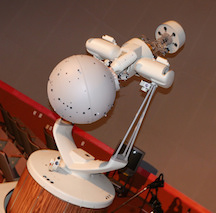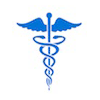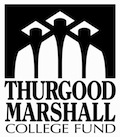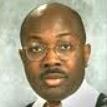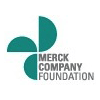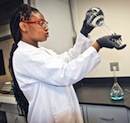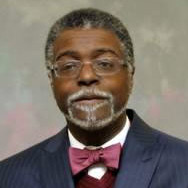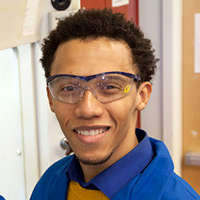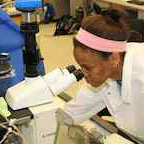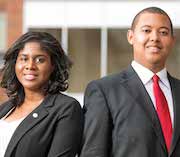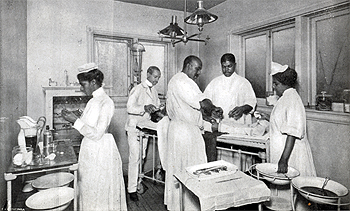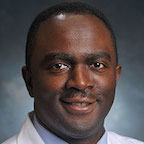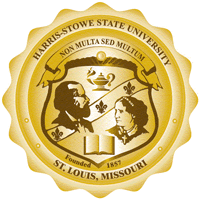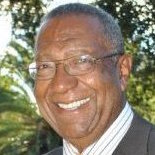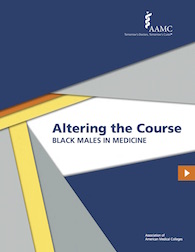Arizona State University Professor Seeks to Advance Engineering Education in Africa
Over the past 15 years, Arizona State University professor Terry Alford has made 12 trips to Africa to teach two-week engineering seminars at schools and universities.
Survey Finds That Black Youth Are Not Interested in STEM Careers
A survey conducted by Harris Interactive for the University of the Sciences in Philadelphia found that 61 percent of all Black high school students are not interested in pursuing a career in heath care or the sciences.
Addressing the Racial Divide in STEM Education
The data suggests that attracting Black students to STEM fields is not the problem but keeping them there is a major concern.
A Check-Up on Black Progress in Nursing Degree Programs
According to data from the American Association of Colleges of Nursing, Black have made tremendous progress over the past decade in increasing their percentage of students in bachelor's, master's, and doctoral degree programs in nursing.
A Second Doctoral Program Is Authorized at Winston-Salem State University
The historically Black university in North Carolina has been approved to establish a doctor of nursing practice degree program. The new doctoral program could enroll its first students as early as this coming fall.
The Top Feeder Schools for Black Medical Students
Howard University produced the most Black applicants to U.S. medical schools in 2011 but by a large margin Xavier University in New Orleans produced the most graduates who earned medical degrees.
New Robotics Laboratory Opens at Elizabeth City State University
The laboratory will train university students to design, build, and program robots and to operate them remotely and autonomously. It will also be used during a summer outreach effort aimed at increasing interest among high school in pursuing careers in high technology industries.
Thurgood Marshall College Fund Works With Army ROTC to Provide Scholarships in STEM Fields
Under the program, representatives of the Thurgood Marshall College Fund visited 452 high schools, community organizations, and other groups to provide information about opportunities in the Army's Reserve Officer Training Program.
The First Graduate of the UConn Medical School from the Rowe Health Scholars Program
The program, funded by the Aetna Foundation, is aimed at increasing the number of undergraduate students from underrepresented groups who pursue careers in the healthcare field.
Rutgers University Program Helps Minority Students on the Road to Healthcare Careers
In 1987, one African American student graduated from the Rutgers pre-med program. This year, the university graduated 52 students who are going on to medical school or are continuing their education in healthcare fields.
Howard University To Develop and Test New Drugs in Africa
Howard University in Washington, D.C., has signed a partnership agreement with TNI BioTech Inc. of Bethesda, Maryland. Under the agreement, Howard University will conduct clinical trials in several African nations for drugs treating addition, HIV/AIDS, cancer, and other diseases.
The New Class of Scholars of the UNCF-Merck Science Initiative
The 2013 UNCF•MERCK Fellows in the biological sciences receive awards ranging from $25,000 for undergraduate scholarship recipients to $92,000 for recipients of postdoctoral fellowships.
A Proven Track Record in Increasing Black Students in STEM Fields
The Virginia-North Carolina Alliance includes nine partner institutions, including four HBCUs. The program has been funded by the National Science Foundation since 2007. During this period the number of students who graduated with degrees in STEM fields is up 67 percent.
Saint Louis University Creates Chemistry Internship Program for Black Students
Saint Louis University in conjunction with the Jost Chemical Company have formed the Clyde Miller Career Academy in an effort to increase the number of minority students who develop an interest in the field of chemistry.
Census Data Shows Need for Further Efforts to Attract Blacks Into STEM Fields
New data from the U.S. Census Bureau shows that while while Blacks are 10.8 percent of all employed workers, they make up only 6.4 percent of all employees in STEM occupations. Blacks make up an even smaller percentage of all workers in specific STEM jobs.
Report Documents Huge Shortage of Black Women Faculty in STEM Disciplines
The gap between the percentage of Black women in STEM faculty posts and the percentage of Black women in the general working-age population is wider than for any other racial or ethnic group.
A Huge Racial Gap in STEM Degree Program Attrition Rates
New data from the U.S. Department of Education shows that almost two-thirds of Black students who start out in STEM-related bachelor's degree programs do not complete their studies in these fields.
HBCU Teams Up With the Army Corps of Engineers
The University of Arkansas Pine Bluff has signed an agreement to establish and participate in STEM enrichment programs, research projects, and paid internships for university students.
STEM Alliance of Washington-Area HBCUs Is Producing Results
The Washington-Baltimore-Hampton-Roads Louis Stokes Alliance for Minority Participation is a consortium of universities that is working to increase opportunities for underrepresented students in STEM fields.
Nuclear Engineer Named Dean at South Carolina State University
Kenneth Lewis was appointed dean of the College of Sciences, Mathematics, and Engineering Technology. He served in the same post from 2005 to 2011.
Four Elite California Universities in Joint Effort to Boost Minority Ph.D.s in STEM Fields
The consortium, funded by a grant from the National Science Foundation, includes Stanford University, the California Institute of Technology, the University of California at Los Angeles and is led by the University of California at Berkeley.
New Alliance Seeks to Boost Black and Other Minorities in STEM Fields
Under the program, nine colleges and universities in Kentucky and West Virginia will seek to increase the percentage of minority students in STEM disciplines by 15 percent by 2016.
New Program Provides Significant Aid for Minority Ph.D. Students in STEM Fields
Using a grant from the Alfred P. Sloan Foundation, 24 minority students at the University of Iowa will receive $40,000 scholarships over the next three years. The university will provide an additional $10,000 to the 24 students.
Two Universities Look to Replicate UMBC’s Success in Graduating Black Students in STEM Fields
The Howard Hughes Medical Institute is allocating $7.75 million in an effort to replicate the success of the Meyerhoff Scholars program at the University of Maryland Baltimore County at Pennsylvania State University and the University of North Carolina at Chapel Hill.
Summer Undergraduate Internships Boost Diversity in Ph.D. STEM Program
Last summer, eight Howard students spent eight weeks conducting bioengineering research on the University of California, San Diego campus. Now, two of the eight will enroll in the UCSD Ph.D. program in bioengineering.
Alabama State University to Debut New Degree Program in Biomedical Engineering
The new bachelor's degree program in biomedical engineering will train students to develop the next generation of disease-fighting drugs, artificial organs, and medical imaging systems. The program will begin in the spring 2015 semester.
Southern University Seeks to Expand Enrollments in Its Computer Science Program
A partnership agreement allows students who have a completed an associate's degree in computer science at Baton Rouge Community College to gain admittance to the bachelor's degree program in computer science at Southern University.
For Ph.D.s in STEM Fields, Blacks Are More Likely Than Whites to Have Non-STEM...
A new study finds that one of every six students who graduate with a Ph.D. in a STEM discipline pursues a career in a non-STEM field. For Blacks with doctorates in STEM fields, one in five pursue a career path outside STEM.
Black Degree Attainments in Engineering: Long Way to Go to Reach Parity
In 2005, Black earned 5.3 percent of all bachelor's degree awarded in engineering. In 2012, Blacks earned only 4.2 percent of all bachelor's degrees awarded in the discipline. Blacks did slightly better in graduate degrees in engineering.
Traveling Exhibit Showcases African American Academic Surgeons
The National Library of Medicine and the Reginald F. Lewis Museum of Maryland African American History and Culture have developed an exhibit on the history of African American surgeons. The exhibit is appearing on campus across the United States and also online.
Three HBCUs Receive Research Grants From the Department of Energy
The U.S. Department of Energy has issued grants to three historically Black universities under its Support for Advanced Fossil Resource Utilization Research program. The three grantees are Delaware State, Clark Atlanta, and Prairie View A&M.
Black Physician at the University of Alabama Birmingham Leading Major Research Project
Alan Tita, a professor of obstetrics and gynecology at the University of Alabama at Birmingham, is leading research into the potential benefits and harms of pharmacologic treatment directed at mild chronic hypertenion during pregnancy.
Students at Harris-Stowe State University Can Take a Computer Science Course for Free
Students at Harris-Stowe State University, the historically Black educational institution in St. Louis, will be able to take a computer science course for free at nearby Washington University.
New Study Finds No Progress in Increasing Black Faculty in Chemistry
African Americans make up just 1 percent of the chemistry professors at the 50 U.S. colleges that have the largest budgets for chemical research. Thirty of these 50 schools have no Black chemistry faculty.
Math Collaborative for Black Males Moves to California State University, Long Beach
The goal of the program, initially established at the Claremont Colleges, was to encourage Black male students, who many would not expect to go to college, to excel at mathematics and other subjects so that they would be prepared for college-level work.
Why Black Men Are Making No Progress in Medical Education
In 1978, 1,410 Black males applied to U.S. medical schools. In 2014, the figure was 1,337. In 2014, women were 62.2 percent of all African Americans who applied to medical school. In every other major racial or ethnic group, men were a majority of all applicants.
